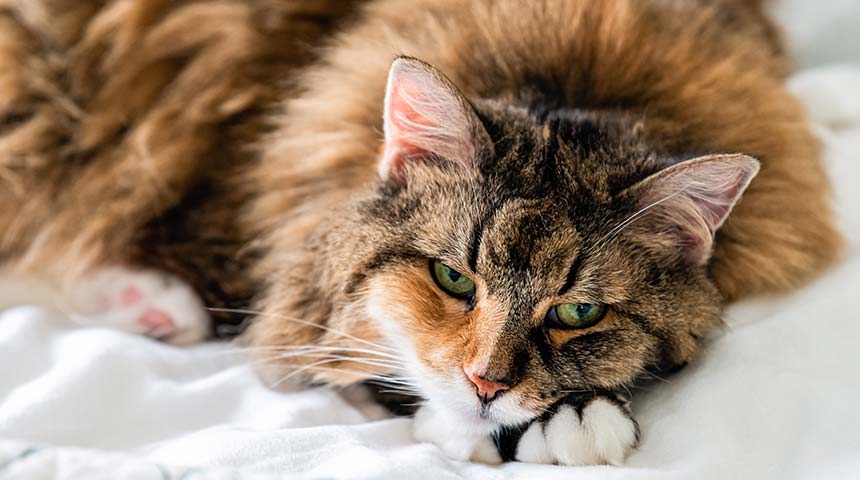
Panleukopenia, also wrongly named "feline distemper", is a highly contagious cat disease that mostly attacks the digestive system. This disease was once widespread but, thanks to highly effective vaccines, it is now a little less common. Unfortunately, it still affects unvaccinated cats, especially kittens, stray cats or those that live in shelters or barns.
Feline panleukopenia is caused by a virus similar to the one that causes dog parvovirosis. The virus is spread in the environment by body excretions (like saliva and stools) during a period of up to 6 weeks after the infection, and it is very resistant to most disinfectants. In fact, it can survive more than a year in the environment.
Symptoms may include depression, loss of appetite, fever, vomiting or diarrhea, sometimes with blood; severe dehydration is often observed. Unfortunately, among kittens, the mortality rate is between 50 and 90%. In addition to attacking the intestines, the panleukopenia virus reaches the circulatory and lymphatic systems. It can also attack the fetus and cause fetal death or permanent cerebral damage among kittens.
For cats that are not vaccinated, the panleukopenia diagnosis is generally based on clinical signs. A blood test (hematology) can also help to establish the diagnosis. A low number of white blood cells can be observed. The word "panleukopenia" means that the number of all white blood cells is less than normal.
As in the case of dog parvovirus enteritis, no treatment can succeed in killing the virus. Instead, one must offer a palliative support treatment to help the cat's body to produce antibodies. The treatment consists in hydrating the cat (intravenous fluidotherapy) and administering antibiotics. Sometimes, antiemetics are used and in severe cases, a plasma transfusion may be necessary. In general, symptoms may last from 4 to 7 days. Disinfection of the area and of contaminated objects with diluted concentrated bleach (1:30) is effective.
It is highly recommended to have all cats vaccinated, not just against panleukopenia, but also against viruses that attack the respiratory tract and against feline leukemia. Kittens should be vaccinated every 3 to 4 weeks up to the age of 12 weeks.
If your pet requires cares that cannot be performed in your hospital, we will transfer its file to one of our internal medicine specialists working at the Centre Vétérinaire Rive-Sud or at the Centre Vétérinaire Laval.

